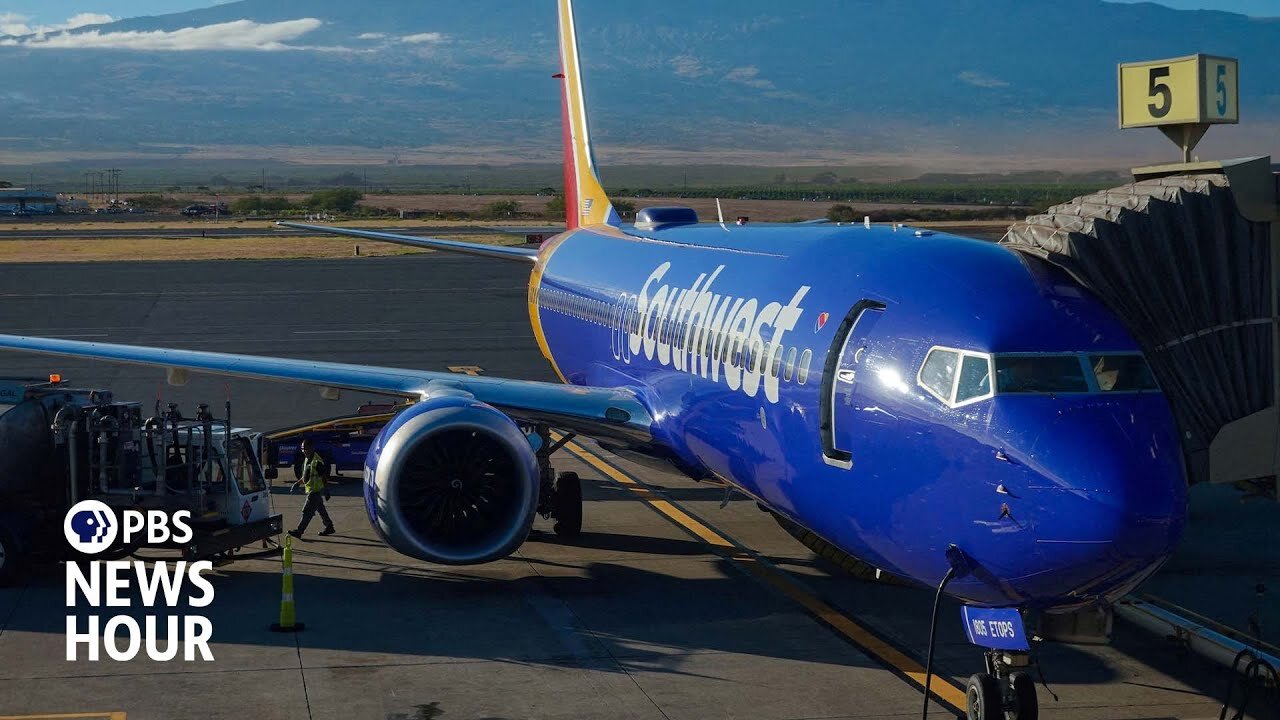Airline Industry Grapples With Oil Supply Disruptions: Challenges And Solutions

Table of Contents
H2: The Impact of Oil Price Volatility on Airline Operations
Oil price volatility significantly impacts airline operations, primarily through increased fuel costs. These fluctuating prices create a precarious environment for airlines of all sizes.
H3: Increased Fuel Costs
Fluctuating oil prices directly translate into higher operational expenses for airlines. This increase in airline fuel costs forces airlines to make difficult choices.
- Increased ticket prices: Airlines often pass increased fuel costs onto consumers, leading to higher ticket prices and potentially impacting passenger demand.
- Reduced profit margins: Higher fuel costs directly eat into an airline's profit margins, reducing profitability and potentially impacting investment in fleet modernization or expansion.
- Potential route cancellations: In extreme cases of fuel price volatility, airlines may be forced to cancel less profitable routes to mitigate losses.
- Impact on smaller airlines: Smaller airlines, with fewer resources and less negotiating power, are often disproportionately affected by fuel price increases compared to larger carriers.
These factors highlight the critical importance of effective fuel price volatility management strategies within the airline industry. The relationship between airline fuel costs and operational expenses is a continuous area of concern and requires proactive planning.
H3: Hedging Strategies and Their Limitations
Many airlines employ hedging strategies – such as purchasing futures contracts or options contracts – to mitigate the risk of fuel price volatility. However, these strategies are not without limitations.
- Futures contracts: These allow airlines to lock in a future price for fuel, providing some protection against price increases. However, they also limit potential gains if fuel prices fall.
- Options contracts: These offer more flexibility, allowing airlines to buy fuel at a predetermined price if prices rise above a certain level, but they involve a premium cost.
- Risks associated with hedging: Inaccurate price predictions and unforeseen market events can render hedging strategies ineffective or even result in significant losses.
- Inaccuracy of price predictions: Predicting future oil prices is inherently uncertain, making accurate hedging a challenging task.
Effective risk management in aviation requires a sophisticated approach that combines hedging with other strategies. Fuel price forecasting remains a challenge, making robust contingency planning crucial.
H2: Supply Chain Disruptions and Their Ripple Effects
Beyond price volatility, disruptions in the oil supply chain itself can severely impact airline operations.
H3: Jet Fuel Shortages
Disruptions to the global oil supply can lead to jet fuel shortages at airports, causing significant operational challenges.
- Airport fuel storage capacity: Limited storage capacity at some airports can exacerbate the impact of supply disruptions.
- Logistical challenges in fuel transportation: The complex logistics of transporting jet fuel from refineries to airports can be disrupted by various factors, including geopolitical instability or natural disasters.
- Impact on regional airlines: Regional airlines, often reliant on smaller airports with limited fuel storage, are particularly vulnerable to jet fuel shortages.
The jet fuel supply chain needs to be strengthened to ensure resilience in the face of unexpected events. Aviation fuel shortages can quickly ground flights and severely disrupt schedules.
H3: Impact on Maintenance and Repair
Many aircraft maintenance processes rely on petroleum-based lubricants and other products. Disruptions to the supply of these materials can have cascading effects.
- Delays in maintenance: Shortages of essential materials can cause delays in routine and unscheduled maintenance, increasing the risk of operational issues.
- Increased costs for spare parts: Supply chain disruptions can lead to increased costs and longer lead times for essential spare parts.
- Potential safety concerns: Delays in maintenance can compromise safety standards, a critical concern for the airline industry.
The interconnectedness of the aviation maintenance and spare parts supply chain underscores the need for robust inventory management and diversification of suppliers. Aviation maintenance disruptions can have severe safety implications.
H2: Solutions and Mitigation Strategies
The airline industry needs a multi-pronged approach to address the challenges posed by oil supply disruptions.
H3: Investing in Fuel-Efficient Aircraft
Technological advancements in aircraft design are crucial for reducing fuel consumption.
- New aircraft technologies: Modern aircraft incorporate more fuel-efficient engines and aerodynamic designs.
- Fleet modernization: Airlines are increasingly investing in newer, more fuel-efficient aircraft to reduce their overall fuel consumption.
- Impact on carbon emissions: This transition to fuel-efficient aircraft also contributes to reducing aviation's carbon footprint.
Fuel-efficient aircraft are a vital component of aviation sustainability. Aircraft technology advancements are continuously being explored to further improve efficiency.
H3: Alternative Fuels and Sustainable Aviation
Sustainable aviation fuel (SAF), including biofuels, offers a potential pathway towards reducing reliance on traditional jet fuel.
- Biofuel production: Several sources, such as used cooking oil and agricultural waste, can be used to produce biofuels for aviation.
- Challenges in scaling up alternative fuel production: Currently, the production of SAF is limited, and scaling up production to meet the demands of the airline industry presents a significant challenge.
- Cost-effectiveness of alternatives: The cost of SAF is currently higher than that of traditional jet fuel, but ongoing research and development aim to make it more competitive.
Sustainable aviation fuel is a key element in the broader effort towards sustainable aviation. Biofuels in aviation offer a promising avenue, despite current challenges.
H3: Improved Operational Efficiency
Optimizing operational efficiency can contribute significantly to reduced fuel consumption.
- Optimized flight routes: Employing advanced route planning software can help airlines find more efficient flight paths, minimizing fuel burn.
- Air traffic management improvements: Streamlined air traffic management systems can help reduce delays and improve fuel efficiency.
- Crew scheduling optimization: Efficient crew scheduling minimizes wasted flight time and unnecessary fuel consumption.
Airline operational efficiency is crucial for mitigating the impact of oil price volatility. Route optimization and other efficiency measures are essential for cost control.
3. Conclusion
The airline industry faces significant challenges due to oil supply disruptions, including increased fuel costs, supply chain issues, and the need for sustainable solutions. However, by investing in fuel-efficient aircraft, exploring alternative fuels, and improving operational efficiency, airlines can mitigate the impact of oil price volatility and build a more resilient future. The key takeaways highlight the importance of proactive strategies, technological innovation, and a commitment to sustainable aviation practices. To learn more about addressing oil supply disruptions in the airline industry and the ongoing efforts towards a sustainable future for aviation, further research into the latest developments in fuel-efficient technologies and alternative fuels is highly recommended. The future of airline fuel hinges on proactive adaptation and sustainable innovation.

Featured Posts
-
 Exclusive Are Kanye West And Bianca Censori Giving Marriage Another Try
May 04, 2025
Exclusive Are Kanye West And Bianca Censori Giving Marriage Another Try
May 04, 2025 -
 Did Blake Lively And Anna Kendrick Have A Public Feud A Timeline
May 04, 2025
Did Blake Lively And Anna Kendrick Have A Public Feud A Timeline
May 04, 2025 -
 Is The Count Of Monte Cristo Still Relevant Today A Review
May 04, 2025
Is The Count Of Monte Cristo Still Relevant Today A Review
May 04, 2025 -
 Call For Greater Public Participation In French Defense Policy
May 04, 2025
Call For Greater Public Participation In French Defense Policy
May 04, 2025 -
 Unlocking Canadas Potential Gary Mars Call To Action For Western Economic Growth
May 04, 2025
Unlocking Canadas Potential Gary Mars Call To Action For Western Economic Growth
May 04, 2025
